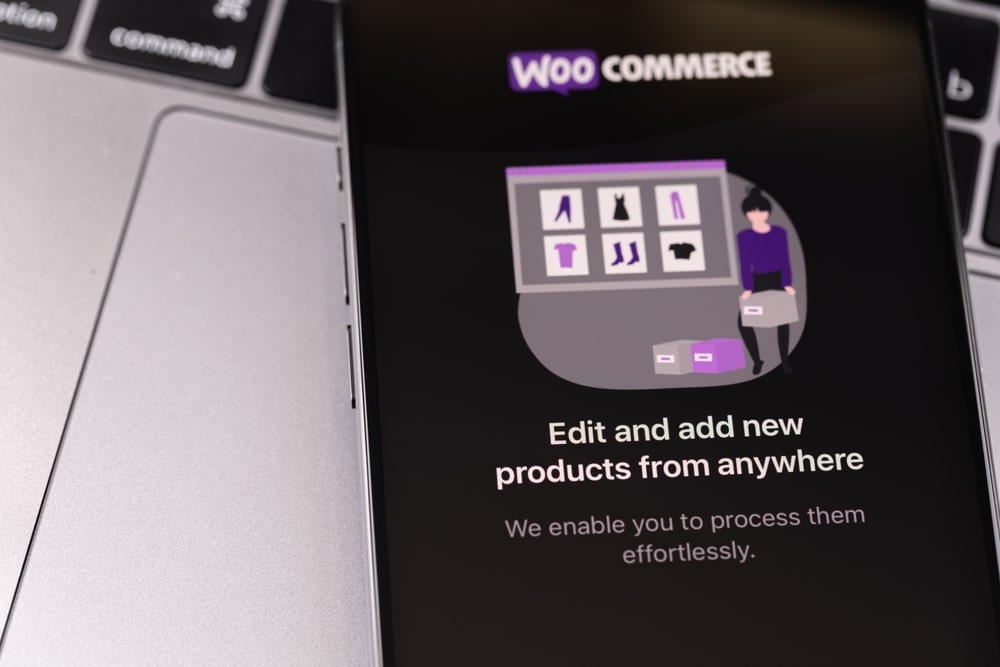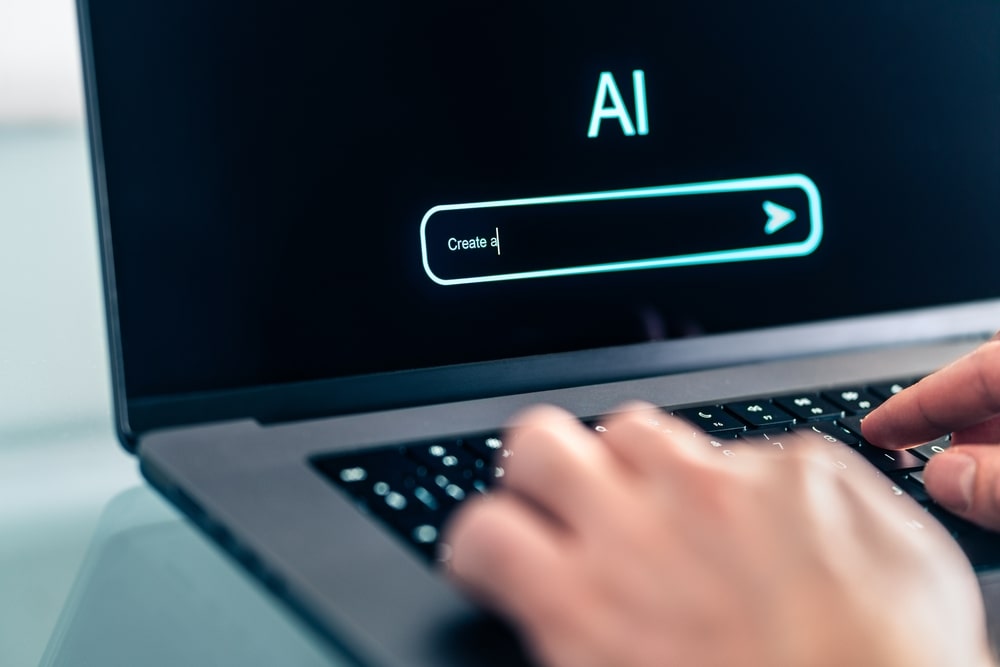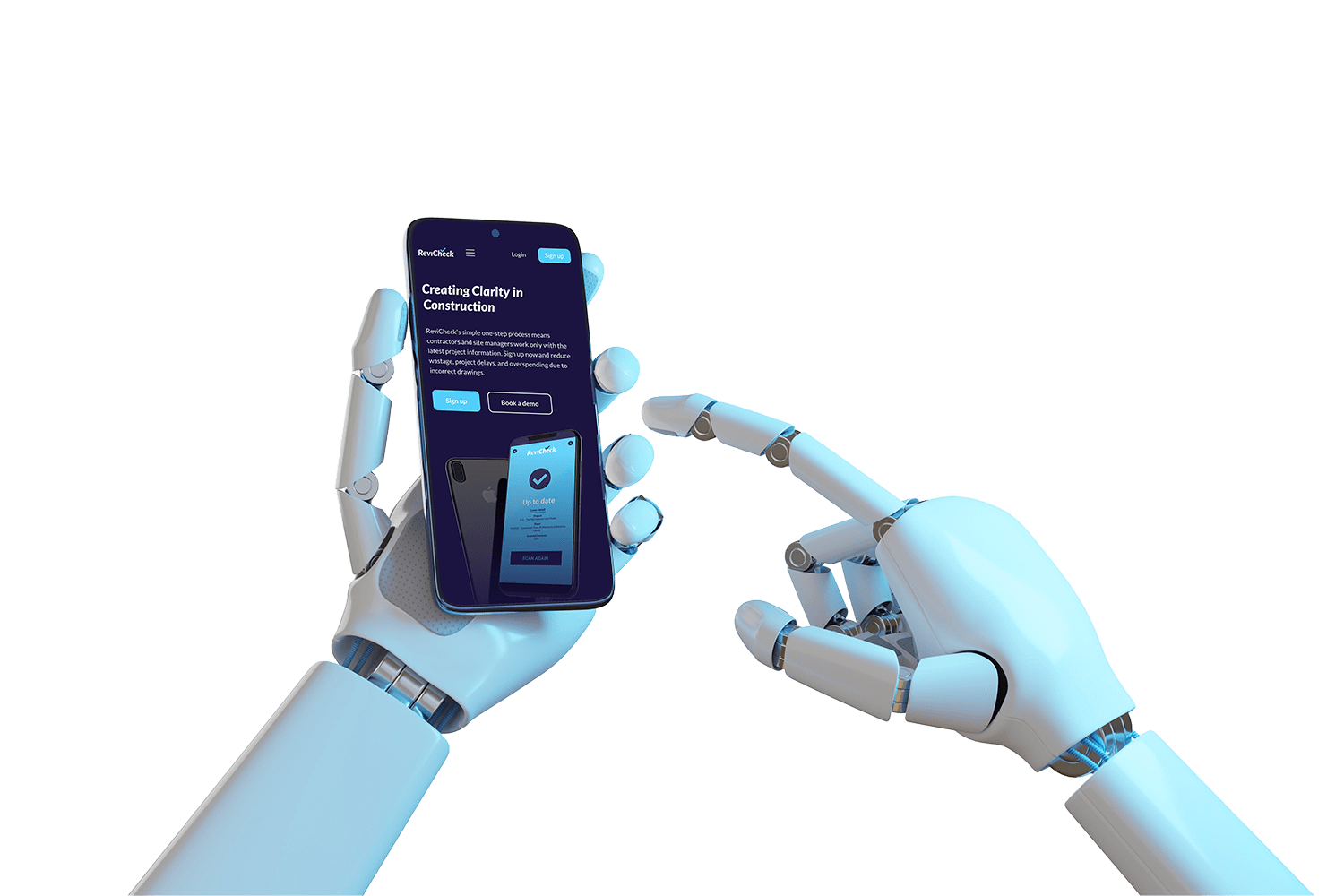Artificial Intelligence (AI) in the context of website automation refers to the application of intelligent algorithms and technologies to automate various tasks and processes associated with website design, development, and maintenance. It involves the use of machine learning, natural language processing, and other AI-driven capabilities to enhance the efficiency, functionality, and user experience of websites.
At its core, AI-driven website automation aims to streamline repetitive and time-consuming tasks that are inherent in the web development process. This includes automating the generation of code, optimising content, and dynamically adjusting website elements based on user behaviour. AI algorithms analyse vast amounts of data, including user interactions, preferences, and industry trends, to inform automated decisions and actions.
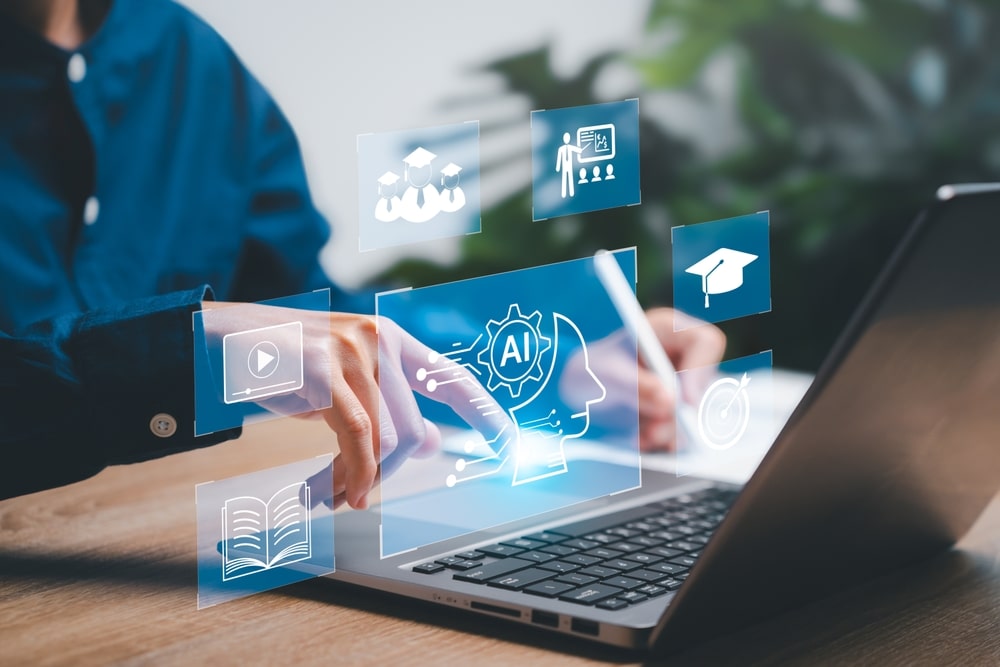
History of AI in Website Automation
We thought it would be good to look at the history of Artificial Intelligence (AI) in website automation, a fascinating journey that reflects the evolution of technology and the quest to enhance the efficiency and functionality of online platforms. The relationship of AI and website automation has roots in the broader history of AI development.
In the early stages of the internet, basic automation tools were introduced to handle repetitive tasks, such as form submissions and data processing. However, it wasn’t until the late 20th century that the concept of AI in website automation began to take shape. The birth of machine learning, an area of AI that focuses on algorithms and statistical models, opened new possibilities for automating more complex tasks.
The late 1990s and early 2000s saw the emergence of rule-based systems and expert systems designed to automate specific functions within websites. These systems, while a step forward, were limited in their adaptability and often required extensive manual programming. As technology advanced, so did the capabilities of AI, laying the groundwork for more sophisticated website automation.
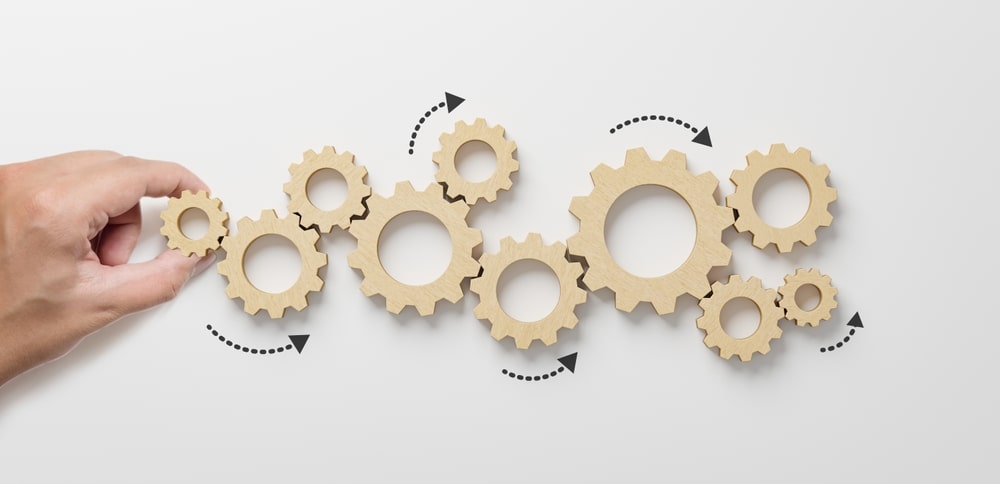
The mid-2000s marked a significant milestone with the rise of AI-driven recommendation systems in e-commerce websites. Companies like Amazon began employing collaborative filtering algorithms to analyse user behaviour and make personalised product recommendations. This early form of AI-driven personalisation set the stage for a more dynamic and user-centric web experience.
The subsequent years witnessed advancements in natural language processing (NLP), enabling the development of AI-powered chatbots and virtual assistants. These chatbots became integral components of websites, providing instant customer support, answering queries, and automating interactions. This evolution in AI-driven communication significantly enhanced user engagement and marked a transition from static websites to more interactive and responsive platforms.
In recent years, AI has played a pivotal role in automating A/B testing and optimisation processes. Machine learning algorithms analyse user interactions, click-through rates, and other metrics to dynamically adjust website elements for improved performance. This iterative approach to optimisation ensures that websites are continually refined based on user behaviour, leading to enhanced user experiences and increased conversion rates.

Looking ahead, the history of AI in website automation is poised for further innovation. As AI technologies continue to advance, the integration of AI-driven tools into website design, development, and maintenance is expected to become more seamless and sophisticated. The history of AI in website automation reflects a journey of continuous improvement, driven by the aspiration to create more intelligent, efficient, and user-friendly online experiences.
Aspects of Website Automation with Artificial Intelligence
Here are several examples that show how AI is being used to automate various aspects of website management.
Chatbots and Virtual Assistants
AI-driven chatbots and virtual assistants are prominent examples of website automation. These intelligent agents use natural language processing to understand user queries and provide instant responses. Chatbots can handle routine customer service inquiries, guide users through website navigation, and even assist with transactions. Virtual assistants contribute to a more interactive and personalised user experience, offering information and support in real-time.
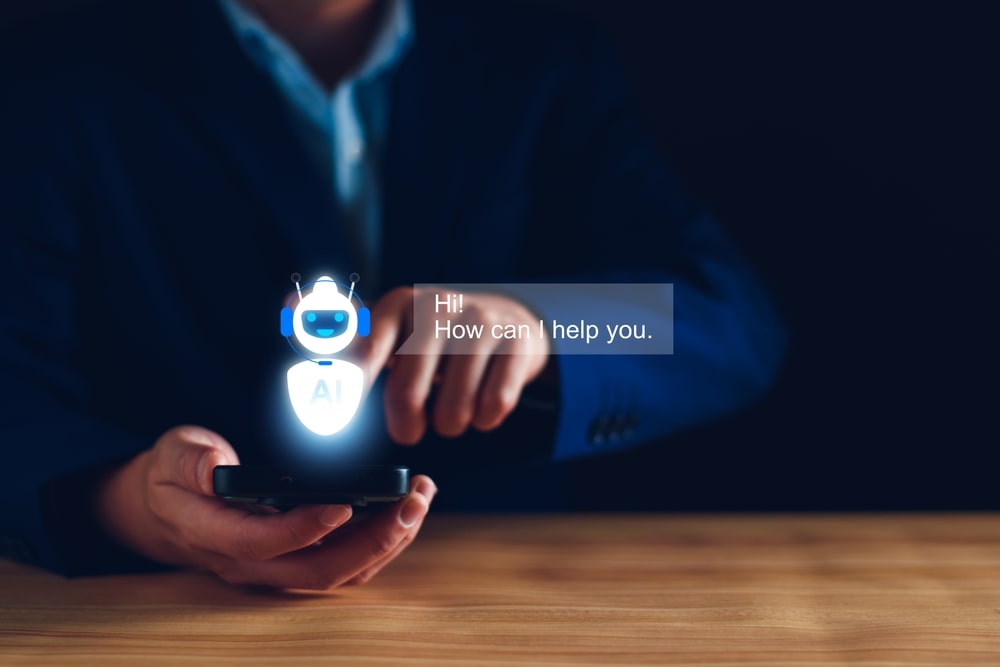
Personalised Content Recommendations:
AI is widely used to automate the delivery of personalised content recommendations on websites. By analysing user behaviour, preferences, and historical data, AI algorithms generate tailored suggestions for products, articles, or other content. Platforms like Netflix and Amazon leverage AI to provide users with personalised recommendations, increasing engagement and fostering a sense of individualised interaction.
Dynamic Content Generation
AI tools are employed for automating content generation on websites. Natural language processing and machine learning algorithms can create human-like text, generating product descriptions, blog posts, and other textual elements dynamically. This not only saves time for content creators but also ensures that the content aligns with SEO best practices and user preferences.
Automated A/B Testing and Optimisation:
AI plays a crucial role in automating A/B testing and optimisation processes on websites. Machine learning algorithms analyse user interactions, click-through rates, and other metrics to dynamically adjust website elements for improved performance. This continuous optimisation ensures that websites are refined based on user behaviour, leading to enhanced user experiences and increased conversion rates.
Ecommerce Personalisation
In the realm of ecommerce, AI is extensively used for automating personalised experiences. AI algorithms analyse user browsing and purchase history to offer product recommendations that align with individual preferences. Personalisation extends to website layouts, promotional offers, and marketing campaigns, creating a more engaging and tailored shopping experience for users.

Automated Email Campaigns
AI is applied to automate email marketing campaigns, tailoring content based on user behaviour and preferences. Machine learning algorithms analyse data to optimise the timing, content, and targeting of emails, increasing the effectiveness of email campaigns. Automated email personalisation ensures that users receive relevant and timely information, fostering customer engagement and retention.
Dynamic Pricing Strategies
AI-driven dynamic pricing strategies automate adjustments to product prices based on real-time market conditions, demand, and competitor pricing. Ecommerce platforms can optimise pricing dynamically to maximise profitability while remaining competitive. This form of automated pricing ensures that businesses adapt to market changes swiftly and efficiently.
Website Performance Optimisation
AI is utilised to automate website performance optimisation. Algorithms analyse data on user behaviour, device types, and browsing habits to optimise page load times, ensuring a seamless and responsive experience for visitors. Automated performance optimisation contributes to improved user satisfaction and search engine rankings.
These examples demonstrate the transformative impact of AI in automating diverse aspects of website management, ultimately contributing to more intelligent, user-centric, and high-performing online experiences.
AI Website Automation Tools
These tools below use AI algorithms to automate various tasks, streamline processes, and enhance overall website functionality. Here are some noteworthy examples of website automation tools with AI:
- Salesforce Einstein: Salesforce Einstein is an AI-powered platform that offers automated personalisation for websites. It analyses customer data, behaviours, and preferences to deliver personalised content, product recommendations, and marketing messages. Salesforce Einstein’s AI capabilities enhance the user experience by tailoring website interactions to individual users.
- ContentSquare: ContentSquare is an AI-driven analytics platform that automates the analysis of user interactions on websites. It employs machine learning algorithms to interpret user behaviour, providing insights into how visitors engage with the website. This tool helps businesses optimise the user experience by identifying areas for improvement and automating data-driven design decisions.
- Optimizely: Optimizely is an AI-driven experimentation and optimisation platform that automates A/B testing on websites. It uses machine learning algorithms to analyse user behaviour and performance metrics, automatically adjusting website elements to maximise conversion rates. Optimizely enables data-driven decision-making for website optimisation.
- Wix ADI (Artificial Design Intelligence): Wix ADI is a feature within the Wix website builder that leverages AI to automate the design process. Users answer a few questions, and Wix ADI uses AI algorithms to generate a customised website design, including layout, color scheme, and content placement.
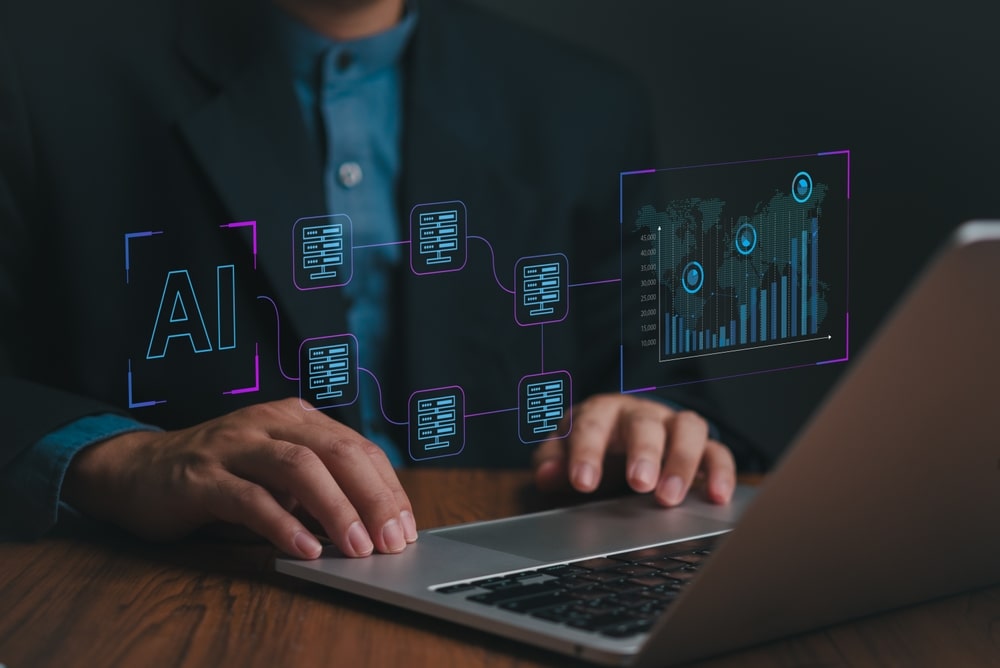
Before we get too ahead of ourselves, we recommend that businesses do not build their website with just AI tools and you can read more about this in our article: Can you create a website with just an AI Website Builder?.
In summary
As we’ve looked at, the integration of AI in website automation represents a powerful combination of advanced technologies to streamline and enhance various aspects of web development and user interaction. From content creation to personalisation and optimisation, AI-driven automation empowers businesses to create dynamic, efficient, and user-centric websites in an ever-evolving digital landscape.


